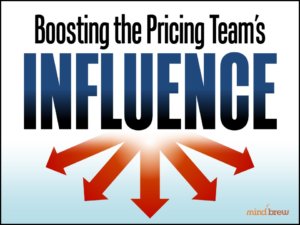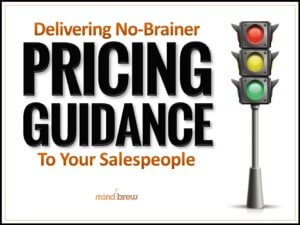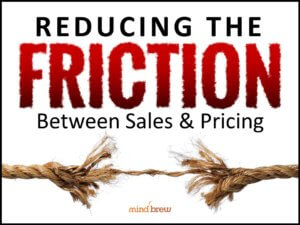Now, why did the headline of this article catch your attention? I mean, beyond the obvious desire to get a raise?
I will submit that it also caught your attention because you intuitively understand that there is indeed such a thing as a right time to persuade your boss to pay you more. And therefore, you also intuitively understand that there is indeed a wrong time.
Our intuitions about timing being an important factor in negotiations are absolutely correct. Behavioral scientists like Dr. Robert Cialdini have been able to prove it beyond a shadow of a doubt. And when we’re pressed to think about it, we can readily acknowledge the dynamics.
The problem is that we don’t think about it nearly enough. And as a result, we’re not as deliberate about it as we really could be.
In the “Boosting the Pricing Team’s Influence” webinar, we explore seven scientifically-validated aspects of human cognition, perception, and behavior that can make you and your team much more effective persuaders, influencers, and negotiators:
- Reciprocity
- Consistency
- Consensus
- Liking & Rapport
- Authority
- Loss Avoidance
- Predisposition
The seventh aspect…what we call “predisposition”…has to do with the fact that our thoughts and feelings just prior to hearing any new message will necessarily affect how we receive and perceive that message. And even though these prior or pre-existing thoughts and feelings may be completely unrelated to the new message, they can still have significant influence, positive or negative.
Intuitively, we get the general idea. We know that it’s always better to catch someone in a “good mood.” And of course, we know that’s why timing matters.
But as we highlight in the webinar, this concept is actually much more specific than just a general “good mood/bad mood” timing dynamic. After all, the scientific experiments indicate that it’s the feelings and thoughts immediately preceding the new messages that matter most.
So it’s not something we have to leave to chance. We can take proactive steps to encourage positive thoughts and feelings just prior to delivering our messages or making our requests. And in this way, we can be much more deliberate about making almost any time the “right” time.
For example, let’s say I’m having a tough morning and I’m in a grumpy mood…
Of course, if you knew this, you could reschedule your presentation and hope to catch me in a better mood later (good luck). But you could also take steps to encourage positive thoughts and feelings just prior to starting your pitch—tell me a funny story, give me a genuine compliment, talk about a fun weekend event, or better yet, ask me about a recent fishing trip.
The point is that getting me into a positive frame of mind…even for just a few minutes…right before I hear your messages, will make a big difference in how I receive and perceive those messages.
It’s very effective. It’s fairly simple. It’s pretty intuitive. And it’s been scientifically validated. The hard part is just remembering to do it!
PS: As for the headline of the article…when is the right time to negotiate a raise in pricing? My personal preference is 6:17 on a Friday before a three day weekend, over adult beverages and nachos. Your mileage may vary 🙂
















